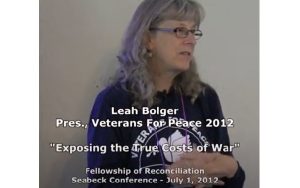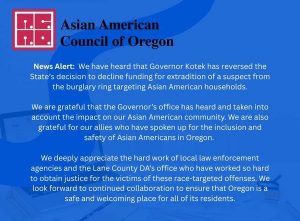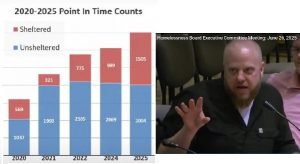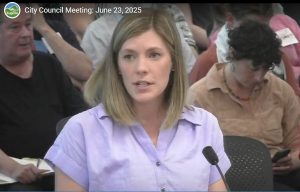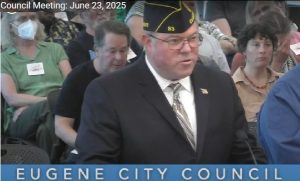PIELC 2023: Universities still aiding and greenwashing the fossil fuel industry
6 min read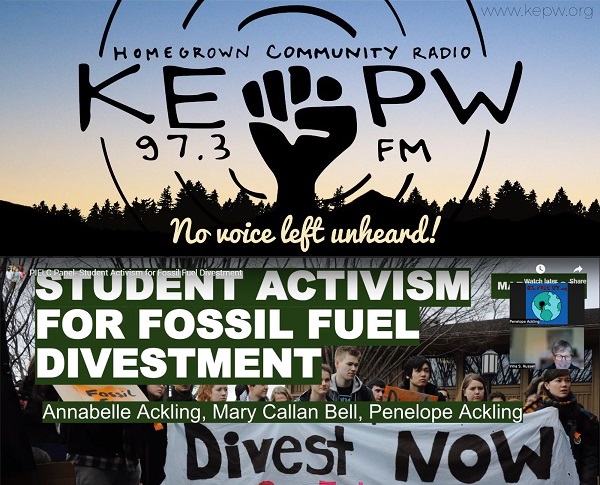
DJ Suss D covers the Public Interest Environmental Law Conference: The legal arguments for fossil fuel divestment.
[00:00:07] Penelope Ackling: I am Penelope Ackling. I am an undergraduate student at the University of Texas at Austin, and I’ve been engaged with our fossil fuel divestment campaign on campus for the past several years.
[00:00:21] Mary Callan Bell: My name is Mary Callan Bell. I’m a 2L at the University of Missouri-Kansas City.
[00:00:26] Annabelle Ackling: Hi, I’m Annabelle Ackling. I am a 3L from University of Missouri-Kansas City. So really the issue is, is that the largest 12 oil companies are projected to spend $103 million every day through 2023 by exploiting new gas projects.
[00:00:46] Ultimately divestment is the process of selling off these assets in an endowment and using those resources to, in turn, to invest in green industry and green companies.
[00:00:58] Penelope Ackling: Yeah. And the reason why the investment resonates with students so much is because we see the climate crisis as the result of a culture that a lot of these institutions really bring forward onto society. And so divesting is really a statement that universities can make to say: ‘We are not going to have relationships within an industry that’s actively ruining the future of our students and the future of our faculty and our staff.’
[00:01:31] So this is about really disrupting that cycle of power that fossil fuel industries maintain by being seen as legitimate players in our political system. So when universities who are supposed to be charitable institutions come out and say, ‘We are not going to be in partnerships with these kinds of industries,’ that is a real sign to the rest of society that something’s really changing with this relationship that society has with the fossil fuel industry.
[00:02:03] Annabelle Ackling: Ultimately, involvement in the fossil fuel industry does not align with the university’s purpose. Since the 1950s, the fossil fuel industry, they have been aware of the threats posed by their business practices. And to protect their companies in the long run, many have launched public relation campaigns to create doubt about climate change. They have been a major driver of misunderstanding and also in the lack of legislative action.
[00:02:29] And they’ve had deliberate and organized efforts to misdirect the public’s understanding of climate change. And they’ve been involved in the climate change counter-movement. Those that are involved in this have been conservative think tanks and advocacy organizations, and they’ve had a major role in really having a lack of public understanding about climate science.
[00:02:50] And they’ve also successfully delayed meaningful state policies that would address these issues. They’ve also been involved in lobbying, contributing to political campaigns and media efforts. So that really is in contradiction to a university’s purpose. Ultimately, involvement in the fossil fuel industry does not align with the university’s purpose, which include education, finding the truth in research, and progress.
[00:03:16] Penelope Ackling: And now we’re seeing these fossil fuel corporations even claiming that they’re going to develop the solutions for climate change. And they’re saying, ‘We’re partnering with universities in order to be a leader in climate science.’ By universities, partnering with these fossil fuel corporations, they’re essentially aiding and greenwashing the companies themselves that are perpetuating the climate crisis.
[00:03:41] Even ExxonMobil just recently came out and said, ‘We are collaborating with leading universities around the world as a part of our commitment to find meaningful solutions to the risks of climate change.’ And they’re partnering with my own university, who is trying to give us careers in addressing the climate crisis. But then we’re also hosting recruiting events with ExxonMobil for us to also put our students in these leadership positions with fossil fuel corporations.
[00:04:12] So you can see how universities are also engaged in fossil-funded research at their own campuses, and the money is coming straight from the oil and gas industry, and studies are actually showing that when this research comes out, it’s more likely to favor the gas industry rather than renewable solutions. And then this is going forward and it is influencing our legislation. So, yeah, very, very much against the university’s purpose that Annabelle pointed out, which is finding truth in our research.
[00:04:47] The divestment movement has multiple aims.
[00:04:51] Penelope Ackling: As a youth-based movement, people who are inheriting the climate crisis, we need to be listened to, our voices need to be brought to the table, as a legitimate stakeholder in the rest of the time that we have as humanity on this earth.
[00:05:08] The second aim is to bring that societal change, to address the contradictions in our institutions because it’s about disrupting that cycle of power and addressing the issue from a systemic level, which is what our institutions are really perpetuating.
[00:05:25] And this is about transitioning equitably. We see this as an opportunity to reimagine our institutions to address not only their environmental degradation, but also the harm that they’ve done to our marginalized communities.
[00:05:40] And we see this as an opportunity to reframe the structures of our institutions in order to really bring those voices to the table instead of giving students these positions of soft power or making claims about things but not addressing them in our pocketbooks or within the cycles of power in the institution.
[00:06:02] And then finally, this movement was born out of the need for institutional accountability. Since universities have existed, students have been exploited and left from the decision-making table. And students have decided that, this is a time where we don’t only want to be brought to the table, but we want to be able to know what’s going on behind closed doors at our institutions.
[00:06:27] There has been a lack of transparency since the beginning of this movement and even beyond as to how much money actually is invested. It takes months and years of research for students to even find out what is actually happening with our tuition dollars, where is it going, and what kind of society is this university building beyond our campus and even on our campus.
[00:06:54] Participant in divestment discussion: The German constitutional court, the year before last, basically struck down the entire German climate transition plan on an intergenerational justice theory and said, ‘This is not aggressive enough because you’re denying the next generations the same standard of living that the current generation has because of the CO2 budget, basically, you haven’t pushed an aggressive enough curve.’ (Mm-hmm.) ‘And so you’re mandating that the quality of life is going to go down for your grandchildren and children.’
[00:07:22] As a political argument, it really is saying: ‘You, the current generation, the boomers, you’re polluting and ruining our world that we’re going to live in,’ basically. It’s very much an intergenerational argument.
[00:07:39] Annabelle Ackling: So ultimately we’re looking at the long-term situation of this divestment, and it really is going to take a whole national campaign. It’s going to take people all over the country to really be fighting for this, for us to see this movement grow and to see the results that we’re looking for.
[00:07:57] Penelope Ackling: You have to constantly make noise, continue those student protests, because as a movement, we really need to be pushing the urgency of this mission, and the urgency of the climate crisis and how we need to act now. We’re running out of time. And so continuing to put the pressure on these institutions is what is really going to enforce that urgency. So from there—
[00:08:25] Annabelle Ackling: We just want to say thank you for coming out and learning about this. This is a very new area of law, but I think it’s going to explode in the next few years.
[00:08:34] The latest legal strategies in a growing national campaign for fossil fuel divestment.
[00:08:39] DJ Suss D: For KEPW News, I’m DJ Suss D.
